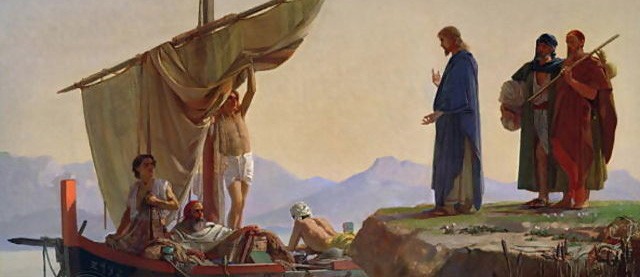We see many American citizens proclaiming an inseparable love of God and country right now. Although it has a new tenor, we have depended on this idea to justify our national actions in domestic and world wars, environmental disasters and political jostling for power.
When we examine Jesus’ relationship to the governing powers of his time, we see a complicated scenario. Jesus and his followers were at odds with an oppressive empire that dominated their social, spiritual, economic and political freedoms. Rome was concerned about a peace that crushed opposition, not the peace of an abundant life that Jesus offers.

Paula Mangum Sheridan
Yet, we know Jesus to be observant of Jewish customs such as participating in the synagogue, reciting sacred texts and wearing the garments that identified him as a Jewish man. He found a way to be faithful, not to the rule of law, but the love of God.
As his life unfolds, we see Jesus redefine and defy religious law to include those considered outside God’s circle. His words and actions horrified and enraged those who had high stakes in the religious and political status quo. Jesus was trouble, both for Romans and for the Jewish religious hierarchy that thrived by sucking up to Rome.
Jesus’ birthplace was determined by Roman decree as his parents traveled during an inconvenient time to register for taxes. They hurriedly fled to another country to avoid infanticide, knowing many other parents lost a child to an insecure ruler easily threatened by a toddler.
As a young man, he lost his cousin, John, to a wavering official’s horrific execution, not a just rule of law. Jesus’ healings and proclamations to the crowds are symbols that the locals recognized as messages of hope that contradicted Roman authority.
Jesus promised that following him was about a power that differed from the might of the Roman legion. It involved the power of humility, compassion, inclusion, all fueled by faith in a redeeming God. When you drop your nets and follow Jesus, then Caesar, owner of the sea and all in it, loses money on your daily catch. When you feed a hungry crowd, particularly women and children, until they want no more, you are unmasking the actions of the selfish elite who hoard food and essentials.
“When you drop your nets and follow Jesus, then Caesar, owner of the sea and all in it, loses money on your daily catch.”
Even though there was enough for everyone, the supply lines were carefully routed to those in cahoots with powerful people.
When Jesus commanded demons to leave a man and enter a herd of swine — a symbol of Roman food and celebration — and leap into the sea, he assured freedom then and in the future. Jesus’ community knew he was not only liberating a man but sending a powerful message that Rome’s rule over them would one day end, as did Egyptian rule.
Warren Carter teaches us that Jesus’ cleansing of the temple was another form of exorcism, dispelling extortion and usury from a sacred and social location for Jews. He rid the temple of the profiteers and healed people who were ill and previously banned from the city and temple in two separate acts. While Jewish law isolated unwanted people, Jesus welcomed them home.
Jesus held leaders in his day accountable for their actions. He rendered to Caesar what belonged to Caesar and rebuked Caesar when authority disregarded human life. Jesus used God’s restoring love as a plumb line for measuring a leader’s success. Although he had no ballot, his life story was a vote against tyranny and self-serving empires.
We are liberated to do the same for those who have authority in all areas of our lives. Holding leaders accountable is more patriotic than blindly following a party line.
It takes lots of energy to revisit our assumptions about being a Christian and citizen here and now. As Jesus teaches, it is a dynamic process that involves faith, uncertainty, a willingness to let go of practices we once held dear in search of new ways of living and thinking.
But there is one message that seems to ring true. We become different citizens in our country and world. The gospel is not something we wield as a power tool but an instrument of justice and healing. The gospel includes and transforms us in a way we can’t yet imagine. The gospel is bigger than my country and my political party.
The gospel asks me to live in possibility, making room for discovery, not locking down with a rigid certainty or unexamined loyalty. The gospel challenges me to live for the good of all people beyond socially constructed borders. The gospel tells me that even my enemy, religious or political opponent, is God’s child.
“We heal when we choose civil discourse instead of rancor.”
We heal when we choose civil discourse instead of rancor. We discover we can speak fearlessly and listen intently. We learn how to disagree with one’s ideas rather than assailing one’s soul.
Parker Palmer reminds us that using diminishing words is a form of violence, injuring one whom God adores. We are all safer when we work for everyone’s wholeness, not just a selected population.
With discerning faith, we can cleanse our own temple, commit to personal, social and political membership that reflects God’s countenance, God’s justice and God’s outrageous generosity toward all. We can inventory and realign our own actions, pausing before we declare holy war on others.
Over time, we can disentangle religious and political loyalty from God’s unflappable love. Living and loving this way can make all the difference in our world.
Paula Mangum Sheridan recently retired from Whittier College as an associate professor and program director of the social work department. She is a licensed clinical social worker and supports voter accessibility and the rights of people without homes in her community.

